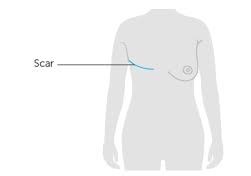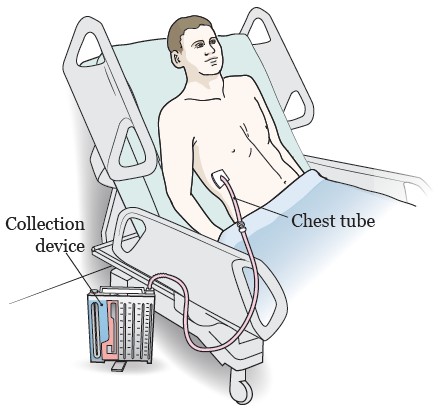A nurse is caring for a client who is scheduled for a mastectomy. The client tells the nurse. "I'm not sure I want to have a mastectomy." Which of the following statements should the nurse make?
"I can give you a list of other people who had the same procedure."
“can give you additional information about the procedure."
“You will be cancer-free if you have the procedure
“You should get a second opinion regarding the procedure."
The Correct Answer is B
Choice A Reason:
"I can give you a list of other people who had the same procedure." - This response might not address the client's concerns and could potentially violate privacy and confidentiality.
Choice B Reason:
"I can give you additional information about the procedure." Response B is an appropriate and supportive response. The client is expressing uncertainty about the mastectomy, so offering more information about the procedure can help the client make an informed decision. Providing accurate and detailed information allows the client to better understand their options and the potential benefits and risks of the procedure.
Choice C Reason:
"You will be cancer-free if you have the procedure." - Making a guarantee of being cancer-free after the procedure might be misleading and overly optimistic. While a mastectomy can treat cancer in some cases, it's important to provide realistic information.
Choice D Reason:
"You should get a second opinion regarding the procedure." - While seeking a second opinion can be valuable, this response might not directly address the client's immediate concerns about the procedure. Providing information first and then discussing the option of a second opinion might be a more balanced approach.

Nursing Test Bank
Naxlex Comprehensive Predictor Exams
Related Questions
Correct Answer is A
Explanation
Choice A Reason:
Vigorously strip the chest tube twice daily. The nurse should clarify the prescription to "vigorously strip the chest tube twice daily" with the provider. Stripping or milking a chest tube is generally not recommended, as it can cause damage to the tube and lead to complications. The movement of fluid and air in the chest tube should be allowed to occur naturally based on the patient's own respiratory effort.
Choice B Reason:
Assist the client out of bed three times daily - This is a reasonable activity for a client with a chest tube, as mobility and deep breathing can help prevent complications.
Choice C Reason:
Notify the provider when tiddling ceases - Monitoring for tiddling (fluctuations in the water seal chamber with respiration) and notifying the provider when tiddling stops is important, as it might indicate a potential issue with the chest tube placement or functioning.
Choice D Reason:
Administer morphine 2 mg IV bolus every 3 hr PRN for pain - Administering pain relief for the client is appropriate and helps manage their comfort. Pain control is important to encourage deep breathing and prevent complications related to shallow breathing due to pain.

Correct Answer is C
Explanation
Choice A Reason:
Changing the catheter dressing daily - While it's important to maintain the dressing and keep it clean and dry, changing the dressing daily might not be necessary. The dressing should be changed according to facility policy and based on assessment findings.
Choice B Reason:
Cleaning the insertion site using 20 mL of hydrogen peroxide - Hydrogen peroxide is not recommended for cleaning PICC line insertion sites, as it can cause tissue irritation. The insertion site should be cleaned with an appropriate antiseptic solution per facility guidelines.
Choice C Reason:
Use a 10-mL syringe to flush the line. When completing discharge teaching for a client with a peripherally inserted central catheter (PICC) line, the nurse should include instructions regarding the proper care of the line. Using a 10-mL syringe to flush the line is the appropriate practice to prevent excessive pressure within the catheter and minimize the risk of catheter damage or rupture.
Choice D Reason:
Not elevating the arm above the level of the heart - Elevation of the arm above the heart level is generally not contraindicated for a PICC line. However, it's important to avoid activities that could lead to kinking or pulling on the line. The nurse should provide specific instructions regarding arm movement and care to the client.
Whether you are a student looking to ace your exams or a practicing nurse seeking to enhance your expertise , our nursing education contents will empower you with the confidence and competence to make a difference in the lives of patients and become a respected leader in the healthcare field.
Visit Naxlex, invest in your future and unlock endless possibilities with our unparalleled nursing education contents today
Report Wrong Answer on the Current Question
Do you disagree with the answer? If yes, what is your expected answer? Explain.
Kindly be descriptive with the issue you are facing.
